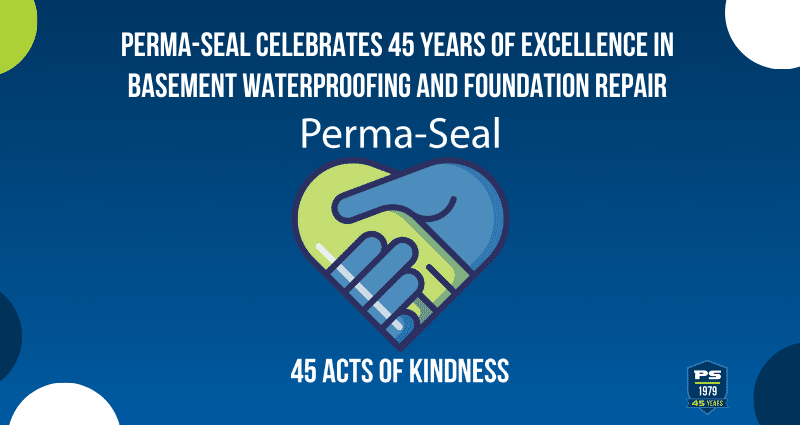News & Information
Check out this area to stay up today with the latest Perma-Seal and industry news & information.

Perma-Seal Celebrates 45 Years of Excellence In Basement Waterproofing and Foundation Repair
Perma-Seal Marks Anniversary with ‘45 Acts of Kindness’ Campaign Burr Ridge, Ill., March 4, 2024

Perma-Seal Hires Dario Lopez as Scheduling Manager
Lopez to play vital role in Perma-Seal’s scheduling Burr Ridge, Ill., February 15, 2024 —

9k Google Reviews, Oh My!
We could not be more excited to reach over 9,000 reviews on Google. To have

Electrician & Plumbing Apprenticeship Opportunities With Perma-Seal
Perma-Seal’s Licensed Electricians and Plumbers Provide Expert Installation, Repair, and Replacement Services Burr Ridge, Ill.,

Perma-Seal Promotes Martin Martinez to Sr. Operations Manager
Martin to play an integral role in Perma-Seal’s operational excellence Burr Ridge, Ill., January 18,

Perma-Seal Earns 2023 Angi Super Service Award
Award reflects company’s consistent level of customer service Burr Ridge, Ill., January 16, 2024 –

Perma-Seal Expands Services to Include Attic Insulation Services
Now through January 31, 24-Months No-Interest Financing Burr Ridge, Ill., January 10, 2024 — Perma-Seal,

Strategic Maverick Welcomes Laura Ann Spencer to Board of Directors
Laura Ann Spencer serves as Executive Vice President and co-owner of Perma-Seal Basement Systems Burr

Emerging Leaders Training
In addition to Perma-Seal’s comprehensive new hire training, Perma-Seal provides, ongoing weekly, monthly, and quarterly